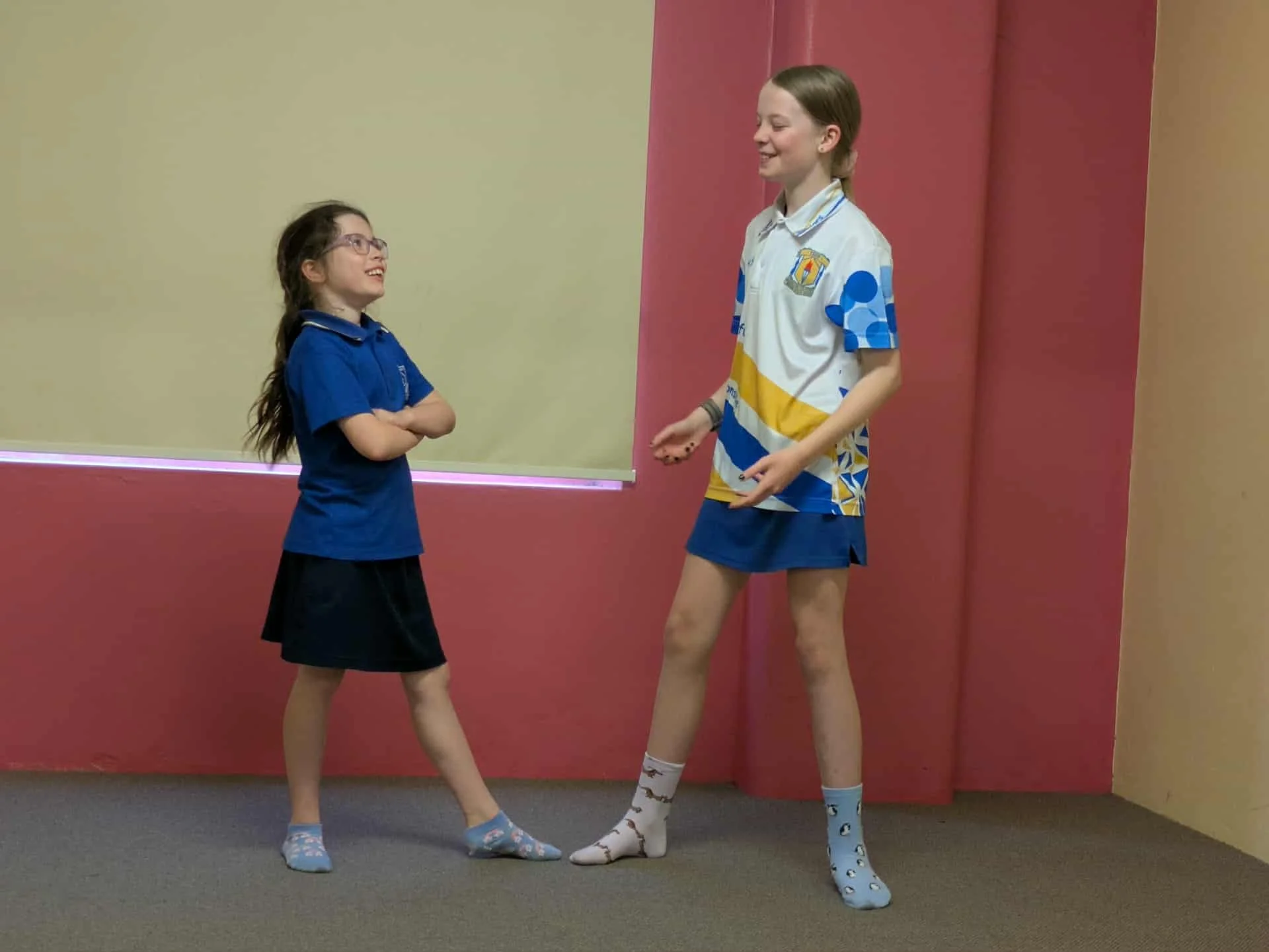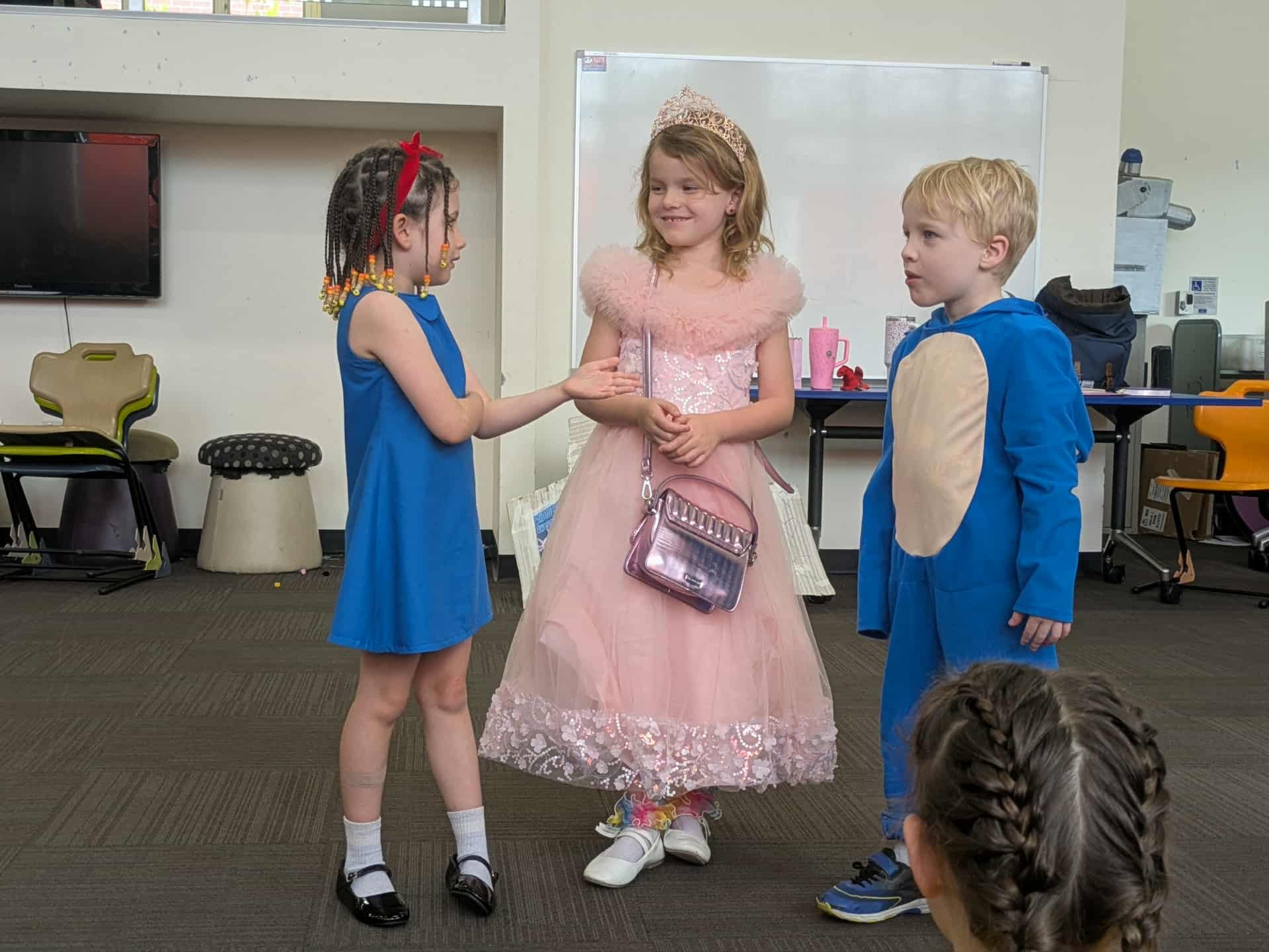The Benefits of Drama for a Young Person
I am one of the biggest advocates of young people doing drama. In a perfect world, I think drama should be taught at all schools, each year level, one class a week. Unfortunately, most schools don’t have the budget for that, which is why enrolling your child in an after-school drama class is so important.
I often have friends, parents and members of my community come up to me and ask why I’m so passionate about facilitating drama and getting young people connected with their creativity. It’s just an extracurricular, isn’t it? Wrong.
Participating in drama classes offers numerous benefits for your young people. These include enhanced communication and social skills, boosted self-confidence and increased empathy, alongside fostering creativity and critical thinking.
And it doesn’t stop there. Through participating in drama, your young person further develops skills of communication, negotiating ideas, team-work, public speaking, and problem solving. These skills are transferable to your child’s schooling and other aspects of their lives including their relationships, friendships and future career pathways.
You might be wondering, how? How does drama do all of that?
Pictured: Two of our Upper Primary Play on Stage students on stage playing a drama game.
It’s all in the games. Each drama game selected by the facilitator develops a particular skill or set of skills. These skills include vocal clarity like confidence, articulation and projection, spatial awareness or collaboration skills. For example, a game like ‘Ship to Shore’ develops a participants creativity by enrolling them as pirates, their spatial awareness by asking them to physicalise a sequence of actions whilst getting them to stay in their own bubble, and their projection when they vocally respond to the captain’s orders.
Meanwhile, games like ‘What Are You Doing’, ‘Doctor’s Surgery’, and ‘Picture That’ are improvisation games which get the participants to actively engage with creative and critical thinking, active listening and spontaneity by responding to stimulus and their classmates in the moment. Improvisation further develops the participants’ tool kit to give them the confidence to keep going if they make a mistake by teaching them how to do so, without letting feelings of fear and anxiety trickle in.
Pictured: Three of our early primary students participating in a drama game, dressed up as their favourite characters.
But what I think benefits young people the most from attending drama is the community it provides them. I’ve seen young people be as quiet as a mouse in their classroom at school and then be the loudest and most expressive person in the drama room. As a facilitator, our number one goal is to create a safe and inclusive space for young people to explore their unique selves - whatever that may be. If that’s dancing along to K Pop Demon Hunters or cosplaying as our favourite Star Wars character, then that’s what we will do.
As a child, I too participated in extracurricular drama classes and it was the highlight of my week. Some of my closest friends to this day are people I met through those experiences, many of whom sang at my wedding last year. There’s nothing like feeling a sense of belonging like there is in a drama room.
Find out more about the programs we have on offer for young people in Brisbane here.


